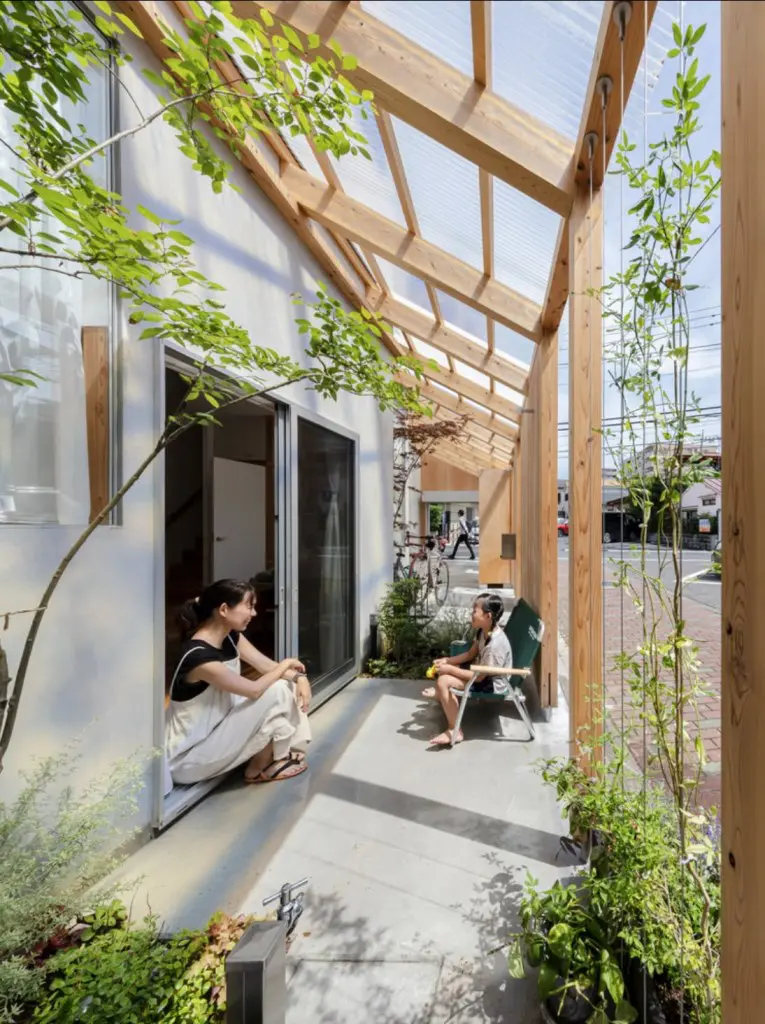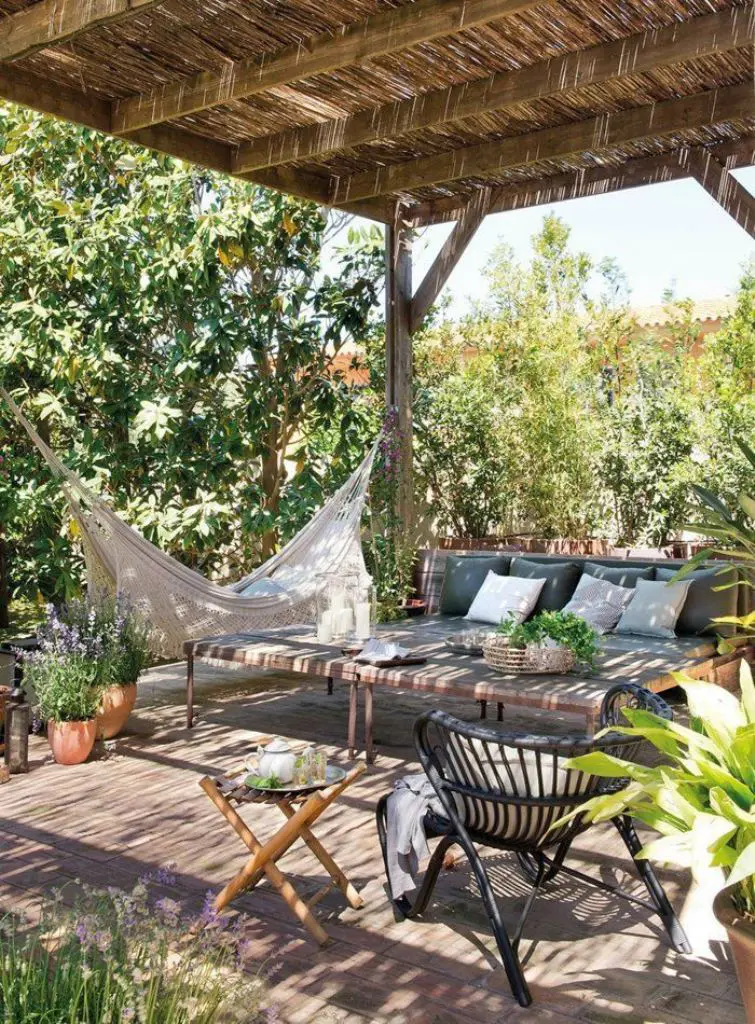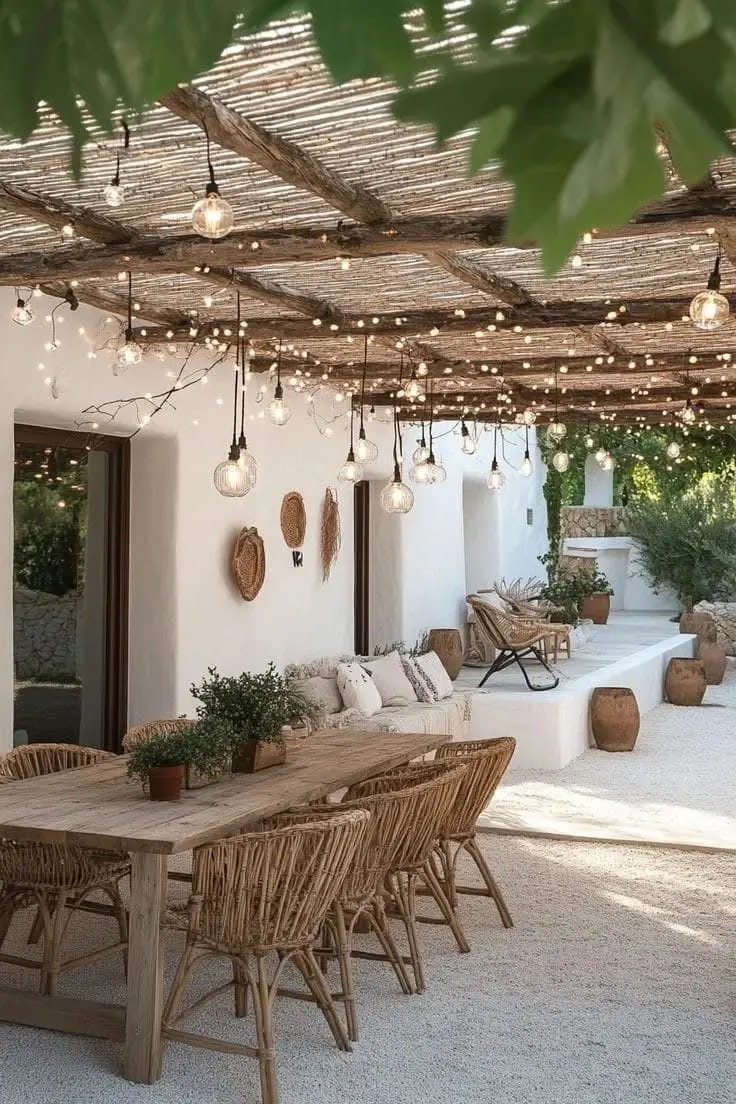If you have a patio or a terrace and feel that you want some protection from the elements, think of adding a cover. A covered patio always feels like an extended living space, it brings comfort and even increases the property value. Covers can be very different, and everyone will be able to find a proper idea for their space. But before choosing, consider some points.
How To Choose Cover Materials?
Choose materials that can withstand your local weather conditions, this is, perhaps, the main point. Consider how much time and effort you’re willing to invest in maintaining your patio cover. Select materials that complement the style of your home and landscape. For the best results, it’s wise to consult with professional designers or contractors, who can provide insights and recommendations tailored to your specific situation.
What Materials Exist?
Polycarbonate
Pros:
Polycarbonate is known for its excellent weather resistance. Polycarbonate covers often have UV-resistant coatings that help protect the area underneath from harmful UV rays while allowing light to pass through. Polycarbonate is lightweight, making it easier to handle and install. Polycarbonate is durable and it does not easily break or shatter.
Cons:
Polycarbonate can trap heat, which might make the space underneath warmer during sunny days, though this doesn’t directly impact its rain resistance. High-quality polycarbonate panels can be expensive, and installation costs may also be higher compared to other materials.

This black pergola features polycarbonate on top that saves the space from rain, and also filters sunlight partly.

The terrace is done with ribbed plastic that protects the space from all the elements but still lets some light inside.

This long and narrow outdoor space is shielded with a polycarbonate roof that allows light in and looks very cohesive with the house.
Fabric
Pros:
Fabric patio covers come in a variety of styles, colors, and patterns, allowing for significant customization and aesthetic appeal. Some fabric covers are treated to be waterproof, providing effective rain resistance. Fabric covers are generally lightweight and easy to install, making them a convenient option. Fabric covers can offer better airflow compared to solid materials, making them suitable for warmer climates.
Cons:
Fabric covers may not be as durable as other materials and can be susceptible to wear and tear over time. They may also require replacement sooner. Fabric covers can require more frequent cleaning to prevent mold and mildew growth, especially if they are regularly exposed to rain.

The outdoor dining space shows textural fabric that adds interest and protects from rain very well.

Fabric covers aren't that durable but they are an affordable way to get protected from the sun and rain.

The terrace is done with a white fabric cover that matches the interior and doesn't make the spot darker. (via quietminimal).

The corner terrace is done with a tent and lights over it, and the fabric matches the upholstery.

The outdoor space is done with a striped fabric cover that highlights the Mediterranean feel of the terrace.
Wood
Pros:
Wood is a strong material that, when properly maintained, can provide a solid and reliable base for your plants or fabric. It looks elegant and adds curb appeal to the space. Pergolas covered with vines and blooms look very beautiful and romantic.
Cons:
Building a pergola, you won’t get much protection from rain or sun but in case you cover it with lush greenery, it will be much better. Wood requires regular maintenance to ensure its longevity. It needs to be sealed, painted, or stained periodically to protect it from moisture and prevent rotting or warping. Wood is porous and can absorb water, which can lead to issues such as warping, rotting, and mold growth over time.

The terrace is done with a bamboo cover that also descends and covers one wall. This texture adds a boho feel to the space.

This bamboo roof won't protect from rian properly but will create shade not blocking out the sun completely.

Bamboo roofs are great not only for shading a space but also to add texture and a boho feel to the terrace.

The terrace is done with a regular roof, where some lights are attached. A usual roof is a great way to protect the space from everything.

If you have a trellis, make sure you cover it with blooming vines for an adorable look.

Pergolas covered with greenery and blooms are my favorite ones because though they don't protect much, they look spectacular.

A pergola is always a good idea for outdoors, though it won't protect much, it looks lightweight. (via almostmakesperfect).

The black pergola features a usual roof that protects very well from everything. (via roomfortuesday).

The black pergola frame is a great idea for a modern space, and as soon as you want, you can cover it with vines. (via forbes).
Other Ideas
Glass is one more solution, which you can apply to protect your patio from the elements, though if the glass isn’t smoked, it won’t protect from the sun. Metal is a nice material for building a pergola, it’s more durable than wood and looks very bold and modern. Building a real roof over the pergola is a great idea for any patio, though it costs a lot and takes time to build, it’s the most timeless and durable idea.

The pergola is covered with slating, which is a nice and budget-friendly protection. (via bhg).

The deck is sheltered with ribbed glass that perfectly protects from the rain and even sun beams are filtered.



























